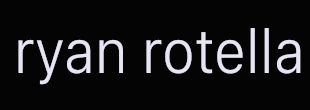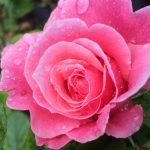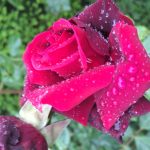The Blues
A question that stuck with me after last week’s class was regarding the title of Maureen McLane’s This Blue: why that color? Why not This Green or This Brown? Well, due to my love of older music and trying to find unlikely interpretations and ground them, I would say blue is an essential color of this work because it sets the tone for the work. Maureen McLane intentionally picked blue because it ranges from beautiful happy things like the color of most of the earth (oceans) or the color of the sky on a beautiful day (“Mr. Blue Sky” by ELO, anyone?), but blue is also used as an idiom for expression of weariness and/or unhappy (feeling blue) and a whole genre of expressing weariness in music (also, the title to one of the best jazz albums ever: Miles Davis’s Kind of Blue).
As Arielle pointed out and discussed, “McLane’s speaker seems to understand that the world is both cannibalistic and at times, harmonious,” and similarly, the tones of these poems in the work shift from playful to cynical in the speaker’s attitude towards the world. For example, in “Late Hour,” McLane’s speaker starts the poem with the question “isn’t it time/ to say the garden/ is wasted/ on us?” (p. 10, lines 1-4). The speaker in this poem is definitely jaded towards the human race in our collective ability to screw up in taking care of nature, a beautiful thing. This speaker is also so weary with this issue that he or she states at the end, “do I recommend/nothing? I don’t know/what to say” (10, lines 12-15). The tone of this poem plays on the idea of blue as cynical dread towards the mistreatment of the environment, which is also seen at the end of “Summer Beer With Endangered Glacier” : “If we/don’t believe/ourselves/custodial/why all/the hoobla-/hoo, hulla-/balloo?/Passivist/mon semblable/ma souer/ soi-meme/blow through/ this blue” (p. 17). The French at the end of the section means something along the lines of “my likeness, my sister, myself” (someone who knows French should really double-check Google Translate and me on this), and it also pairs the speaker nicely with the feeling of ennui towards the world.
However, blue is also used as comforting in this work like in “Quiet Car.” “Soon I will climb in the old blue car/and drive to Back Bay, not too far/from you my love now riding in the quiet car” (p. 92, lines 12-14). Blue is used affectionately in this work as a sort of vehicle for expressing all the speaker’s concerns and worries, achieving a sort of cathartic expression. That’s what playing the blues is all about: achieving some emotional release through expressing the weariness the world throws at you. Maureen McLane picked a very good title for an even better book of poems.




No Comments